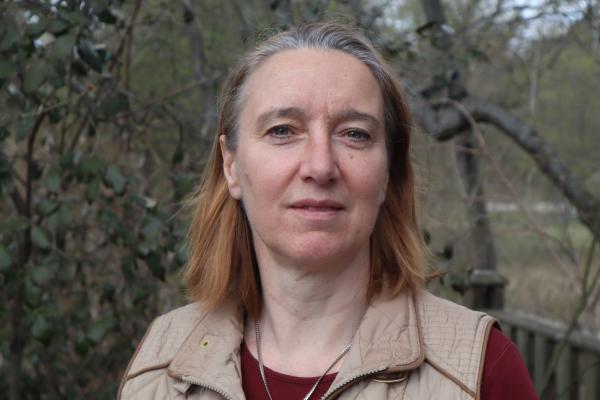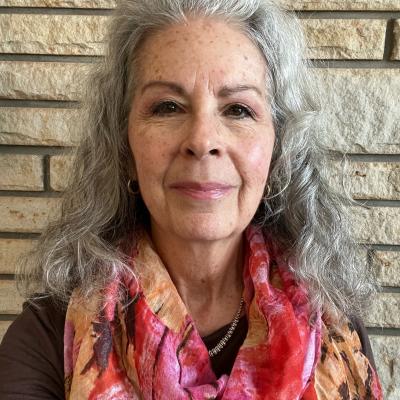Water Diplomacy Talks - Integrating Water Management Across Sectors And Scales
No More "Silo Thinking"
3 May 2022 by The Water Diplomat
STOCKHOLM, Sweden

Water Diplomacy Talks and The water Diplomat Voices are a series of guest columns written by participants in different parts of the international water community.
Marianne Kjellén (PhD), Senior Water Advisor, United Nations Development Programme (UNDP), works with UNDP’s Water & Ocean Governance Programme at the Bureau for Policy and Programme Support. In UNDP’s Global Policy Network (GPN) Marianne contributes with thought leadership, policy advocacy and technical support on water governance. She engages with global and international processes and supports project implementation and oversight on water governance-related substance. Prior to re-joining the UNDP in 2016, she worked for the Stockholm International Water Institute (SIWI), the Stockholm University and many years for the Stockholm Environment Institute (SEI).
Marianne has over twenty years of experience with water policy, development and research, with field experience from Sub-Saharan Africa and Latin America. Marianne is trained in economic geography and has focused on informal water provisioning and public-private relations in her research.
As Senior Water Advisor Water and Oceans Governance at the United Nations Development Programme (UNDP), I work to develop UNDP’s corporate positions relating to water issues and we support our country offices in 170 countries and territories around the world.
We aim to connect water issues from ‘source to sea’, but also to overcome ‘silo thinking’ in the field of water. Integration is UNDP’s stronghold: we provide connections between all the SDG goals, we connect upstream and downstream, and we have an approach that embraces whole river basins, including their interactions with the coast and oceans.
There is a lot happening in water at the international level: the Global Acceleration Framework (GAF) has been adopted to speed up the implementation of Sustainable Development Goal 6; there is the upcoming midterm review of SDG 6 at the global level; and there is the upcoming UN conference on water on New York (22-24 March 2023).
The GAF is very welcome as it helps us all to frame and connect our actions. UNDP participated in the launch of the GAF and in efforts to galvanise support around it. In March 2021, the President of the General Assembly held a one-day meeting at which UNDP and UNICEF were forthcoming to help ‘socialise’ the accelerators. The GAF includes a drive on financing, innovation, data and information, capacity building, and governance.
For UNDP, governance is the area on which we place the most emphasis, and capacity building is a second area in which we provide support. UNDP has a broad pallet of support, and since governance connects a lot to how societies are governed, it is important to us to see that governance also works for water management, to ensure that there are participatory and inclusive processes and to equalise the different powers at work that influence how we manage our resources.
If finance sets the speed of actions, it is governance that gives direction to the work that is done. We strive for ‘whole of government’ approaches that seek to integrate different sector concerns: we have to understand that the decisions that affect water may be taken by people outside the water sector, and that is why we have to take a cross sectoral approach. We need to create buy in around broader social values by helping actors to understand their role and the contributions they can make.
Furthermore, if we look at the level of a household, there is no ‘energy sector’ or ‘water sector’ as everything is actually integrated. Having an openness to a participatory and inclusive approach, especially at the local level, is important. In practice this is actually different stakeholders, or constituency groups. UNDP is in fact the largest provider of Integrated Water Resources Management solutions at the global level. Our strength is in the environmental dimension, where we systematically integrate an ecosystems approach throughout our work. I think that this will be aided if we can work more strongly at the local level to bring the social and economic concerns more consistently on board in an integrated way, as they are in the 2030 agenda. I have to say that sometimes the way in which external (donor) support is organised forces us to work in silos rather than having a geographical focus which integrates resource management and service provisioning within a unified vision. To better integrate resource protection, water infiltration and absorption capacity, etc. into service provisioning, it is essential to think at the local level, and this would catalyse a ‘whole of society’ approach to solutions.
Returning to the Road to New York, the midterm review of SDG 6, and the water and climate linkages: UNDP is supporting UN Water in the preparatory consultations for the conference in New York and our country office is providing support in Tajikistan for the Dushanbe conference.
Regional consultations are also being prepared, but I think there is room for more systematic inclusion of different perspectives. Consultation and stakeholder involvement takes time and involves the commitment of resources. Certainly, if we want to include vulnerable groups we may have to adapt some of the processes. Also, one could be more systematic about bringing in the different sectors, especially such as agriculture or the health sector. This is in fact the substance of integration, and if more resources could be made available, this can be achieved.
For the Stockholm + 50 conference (Stockholm, 2-3 June 2022), UNDP is facilitating consultations in some 50 countries. On the water and climate issue, for as long as I can remember, UNDP has integrated climate concerns into its work on river basin management within a risk perspective of ‘new unknowns’. At the same time, there are so many other things that need to be done in the water sector in delivering services, in improving management systems, in protecting catchments, in working to reduce the impermeable surfaces in urban spaces – that the climate perspective sometimes tends to be over emphasised.
On the review of SDG 6, there has been a huge investment in data collection and systematising that monitoring. In this sense, the SDGs have been a game changer in trying to figure out where we stand. However, the local capacity and the local use of data might be an area where we want to advocate more for: countries are delivering data to the international level and more countries are responding, and we know that we are not achieving our ambitions. I would hope that there is more demand for data at the local level and that local policy making becomes more informed and evidence based.
Finally, on the call for action and the idea of a Pact for Water, it is good to bring stakeholders together around a common purpose and an integrated vision. This is what this year is very much dedicated to. But at the same time we must not forget the commitments that have already been made in the context of SDG 6: this provides a holistic and integrated framework that responds to the different aspects of the water cycle. The UN conference is an opportunity to recommit to this vision and work together to accelerate the realisation of the goal as well as all of its targets.
More Information on Dushanbe Conference HERE
More Information on Stockholm+50 Conference HERE
Related Topics

11 Feb 2022 EDINBURGH, United Kingdom
Diplomacy Talksand The water Diplomat Voices are a series of guest columns written by participants in different parts of the international water community. Dr. Renee Martin-Nagl...
